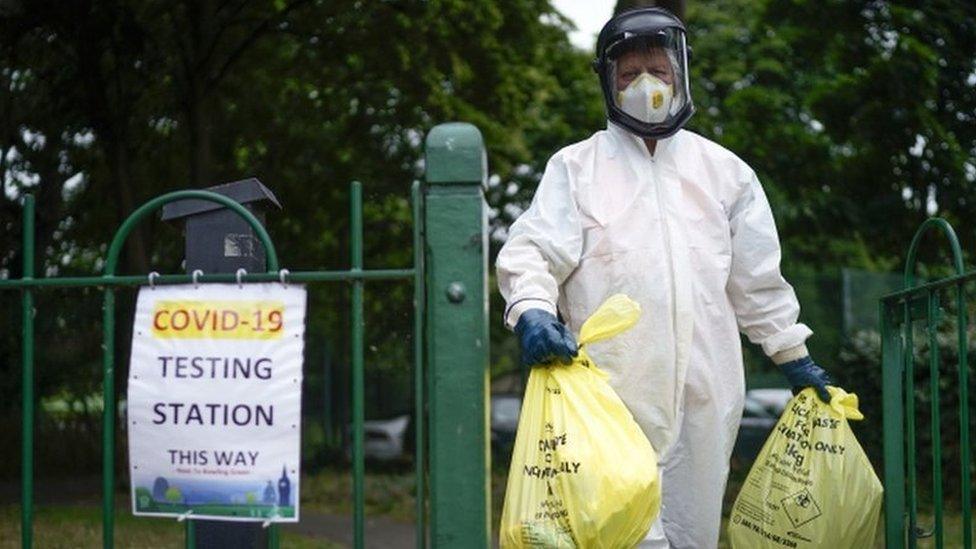Covid-19: How is Leicester coping with lockdown?
- Published
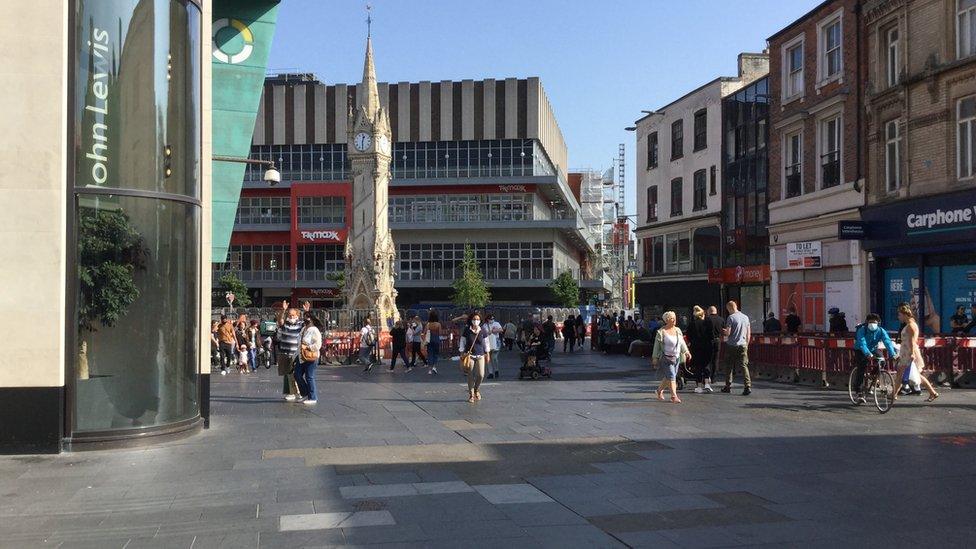
Pubs and restaurants reopened in Leicester in early August but some restrictions are still in place
Coronavirus restrictions were tightened across the country on Wednesday, but people in Leicester have been on a tougher level of lockdown for months. How are people in the city coping?
On the face of it, life in Leicester appears to be returning to normal. Pubs and restaurants are open again, the school term has begun and people have tentatively started to return to work.
However, while many in the UK were able to enjoy a relatively relaxed summer, residents of the East Midlands city have not been allowed to meet in each other's homes or gardens since lockdown began, thanks to ongoing local restrictions.
They have also been advised not to socialise with people they do not live with or who are outside their support bubble, external in public spaces, such as restaurants and bars.
On Wednesday the government imposed tougher rules across the country. But it stopped short of imposing the same rules on households mixing that are in place in many local lockdown areas, such as Leicester.
People here have lived with tougher restrictions for longer than anywhere else in the country and it is still not clear when they will be finally be allowed to meet people in their own homes again.
"I just want to have a cup of tea in the kitchen with my mum," said Yvonne Bloor, who lives in the city.
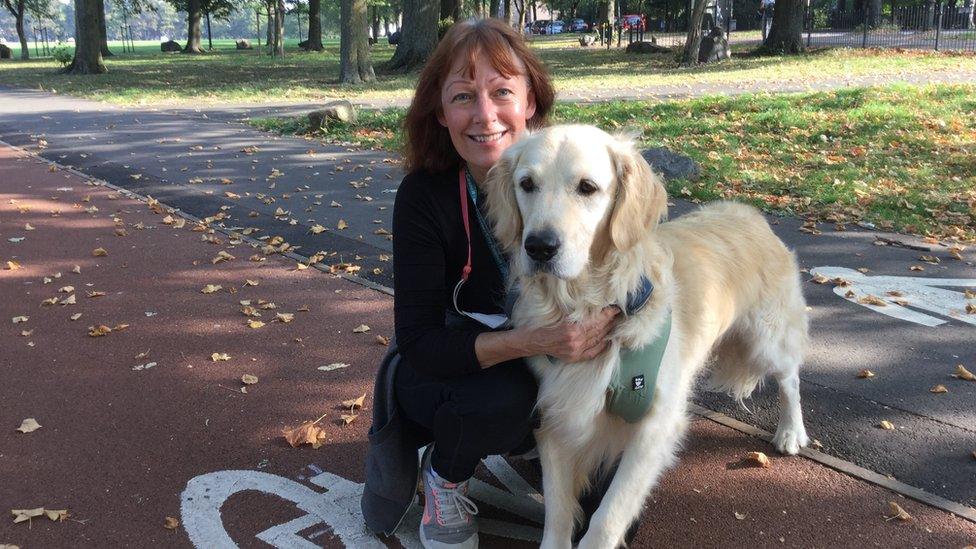
Yvonne Bloor's mother lives in North Yorkshire
She feels the continuing restrictions are preventing her from spending time with her mother who lives in North Yorkshire.
"She's had a hip replacement, she's got diabetes, she's semi-invalid," she added.
"If she were to die before I see her again, I don't know how bitter I'm going to feel."
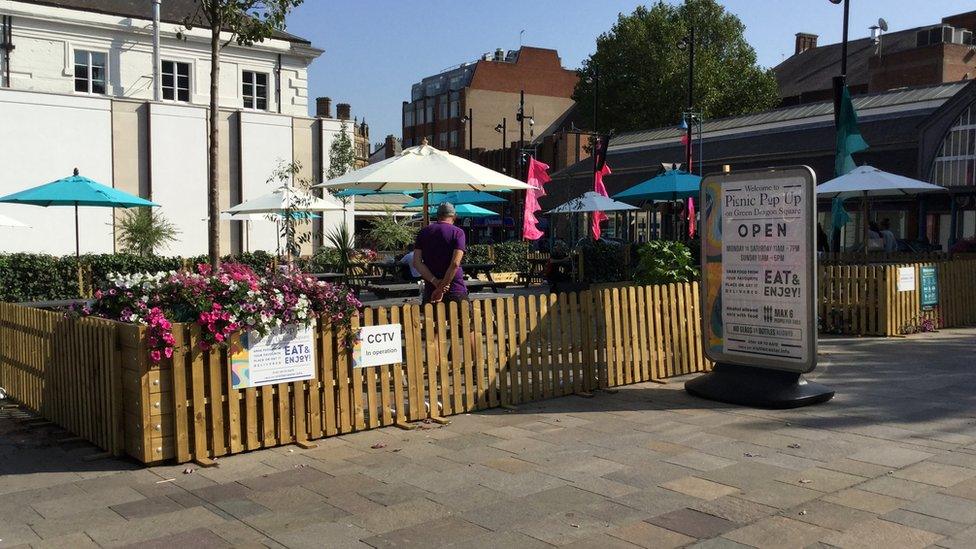
A pop-up outdoor eating area has been set up in Leicester's Green Dragon Square
Leicester residents are able to form support bubbles with other households, provided they live alone or are a single-parent household.
And many in the city have found ways to live with the extra restrictions. Families can be seen exercising together in parks and more outdoor seating has been set up.
But there is some underlying resentment among residents.
Jamarn Clarke, 26, said: "The fact that you can't see your parents [in their homes] but you can go into a pub gives the message as long as it contributes to the economy it's fine."
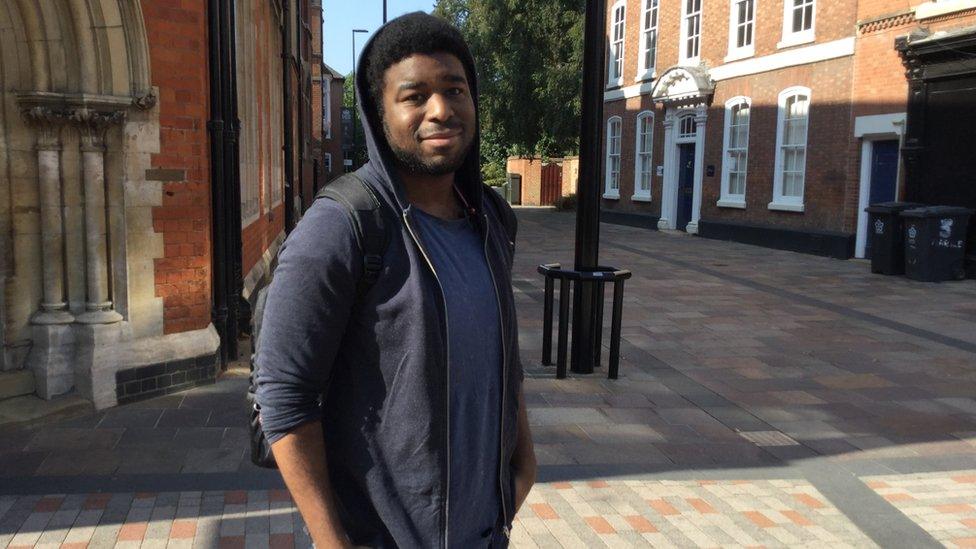
Jamarn Clarke thinks the economy is having an influence on some of the rules
Indira Nath, 80, believes the stricter local restrictions worked well to begin with but believes they have been undermined by the fact people can still travel.
"I think a number of people have been wandering off on holiday abroad and bringing it back," she said.
Hospital admissions in Leicester, along with the number of coronavirus cases and deaths, were brought down during the local lockdown - imposed on 30 June - but have started to rise in recent weeks.
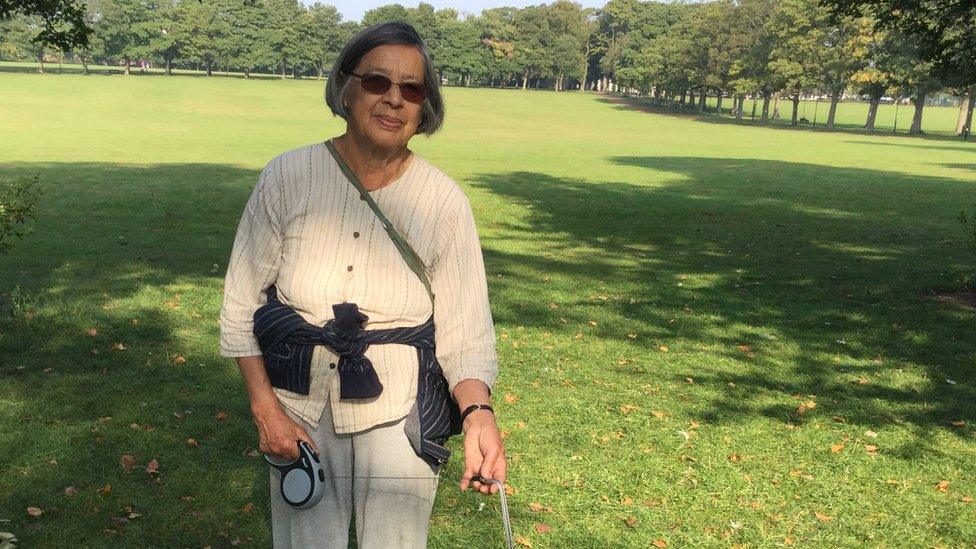
Indira Nath suspects some people have been bringing the virus back to the UK from abroad
When Health Secretary Matt Hancock announced Leicester would not emerge from lockdown with the rest of the country, the city had a seven-day infection rate of 135 cases per 100,000 people, which was "three times higher than the next highest city" and admissions to hospitals were between six and 10 per day - compared to about one a day at other trusts.
By the end of August, its seven-day infection rate had fallen as low as 13 cases per 100,000 people, external.
But the number of cases has started creeping up again and in just two weeks the number of new infections has returned to levels not seen since mid-July,, external according to the city council's data.
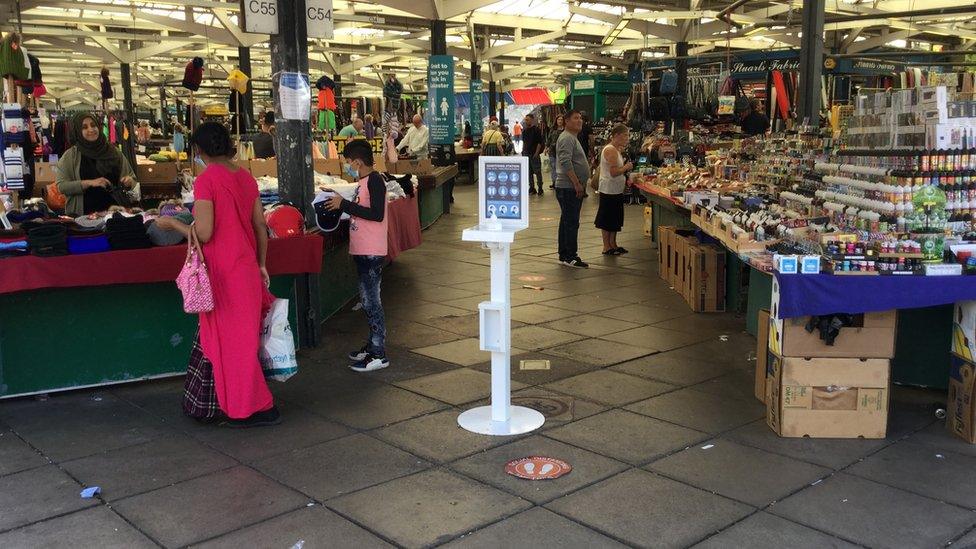
When Leicester became the first UK area to be locally locked down, its infection rate was three times higher than the next highest city
The city's mayor Sir Peter Soulsby said he believed it was action by the local council "rather than the sledgehammer of the local lockdown" which brought down cases.
He said: "I don't think the rather crude way [the lockdown] was introduced or the range of measures were effective.
"What has made the difference was when, after a lot of struggle, we were able to get the details of where it was in the community and we at a local level could intervene to encourage and inform people."
The Department of Health and Social Care has been contacted for a response.
New restrictions announced in England this week restrict meetings to six people but there are concerns among residents further national restrictions could be imposed.
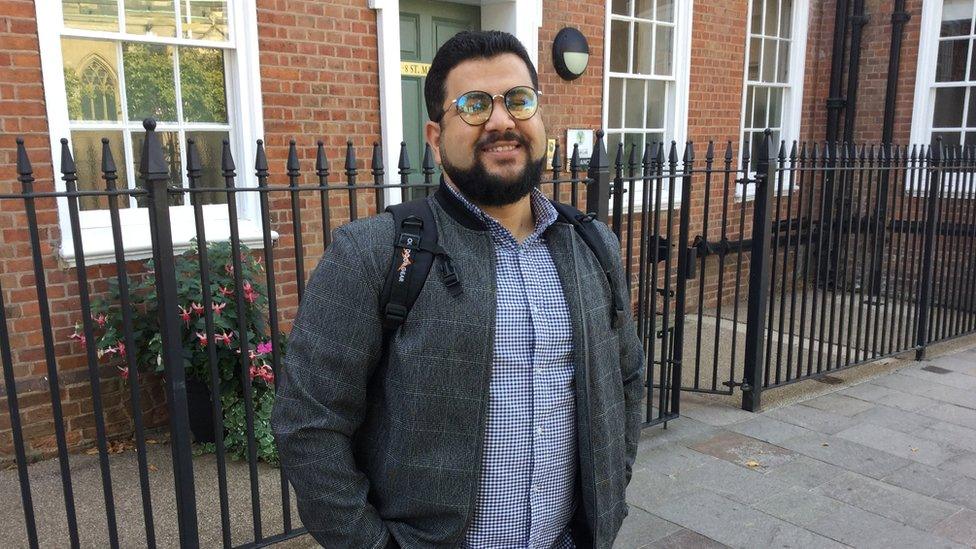
Ali Gerged thinks people in the city are starting to panic in case further restrictions are imposed
With the number of coronavirus cases increasing daily, Ali Gerged, 35, who works at De Montfort University, thinks people in the city are starting to panic about having more limits put on their freedom.
"Everyone is now thinking, 'Let's go out enjoy the weather before the next lockdown,'" he said. "We didn't have enough of hanging out and enjoying a next-to-normal life [like other parts of the country]."
But restaurant worker Joanna Lesniak, 21, said she believed the local restrictions were working and welcomed the national measures, despite losing her job during the first lockdown.
"It's about our health, and you can't put a price on that," she said.
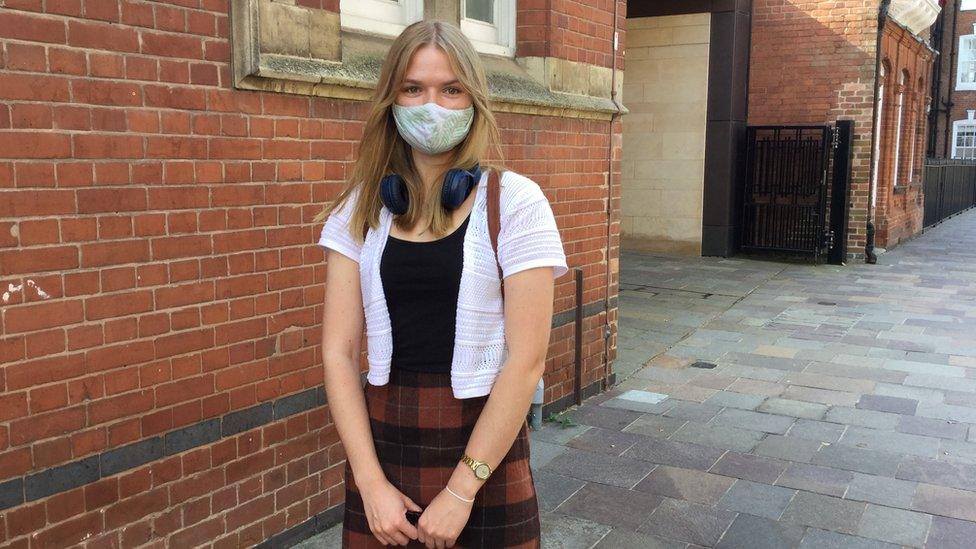
Joanna Lesniak lost her job in a restaurant during the first national lockdown

SOCIAL DISTANCING: What are the rules now?
SUPPORT BUBBLES: What are they and who can be in yours?
FACE MASKS: When do I need to wear one?
TESTING: What tests are available?


Follow BBC East Midlands on Facebook, external, Twitter, external, or Instagram, external. Send your story ideas to eastmidsnews@bbc.co.uk, external.
- Published30 June 2020
